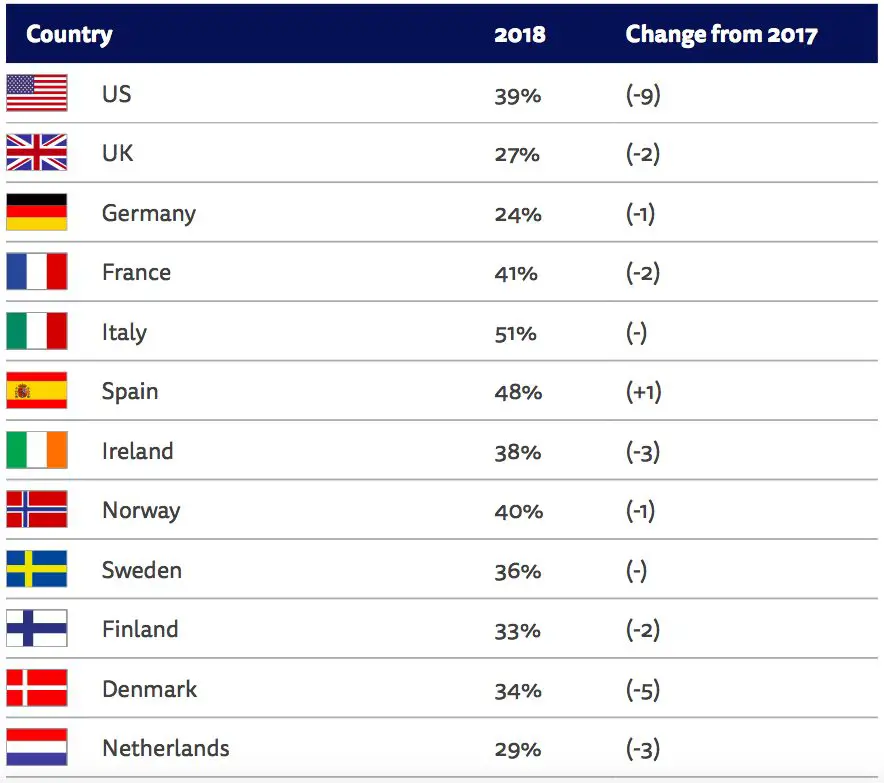The importance of Facebook as a platform for news usage is declining steadily, while other smaller platforms are increasing in influence.
According to a report from the Reuters Institute for the Study of Journalism, based at the University of Oxford, the percentage of people who trust social media as a source of news is declining steadily. The 2018 Digital News Report shows that Facebook, in particular, is paying the price more than others, as more people prefer to use messaging apps like WhatsApp for news.
Based on an online survey of 74,000 people across 37 countries, the 2018 Digital News Report reveals that the use of social media for new has fallen to 45% over the last year (-6%) in the US, but that similar declines have been observed in other countries like the UK, France and Germany. The data shows that the declines “almost entirely” resulted from changes in the use of Facebook which was the most “widely used social network for news” in nearly every country on the list.
In the United States, Facebook for news consumption is down 9% – more among younger users (-20%). The use of Facebook for news in Brazil has fallen 17% since 2016, to 52%. In other markets surveyed, Facebook as a source of news also declined. 2% in the UK and France since 2017, 3% in Ireland and the Netherlands, and 5% in Denmark.
Average news usage for Facebook has fallen to 36%, from 42% in 2016. On the other hand, other platforms and networks have remained stable or have been growing in terms of news usage. A good example is WhatsApp, used for news by 54% of users in Malaysia, 48% in Brazil, 36% in Spain, and 30% in Turkey.
Nic Newman, research associate at the Reuters Institute for the Study of Journalism, explained that the decline of Facebook and the increase of news usage on other platforms has “to some extent […] been driven by publishers changing their strategies, in a bid to become less dependent on Facebook.” Also, Facebook has become rather unfriendly to news publishers lately, who have seen their reach plummet in the last years.
So, media companies are trying other things. For example, “more media companies have adopted the ‘Instagram story’ format, which now attracts around 300m daily active users per day,” he explains.
Also, part of the problem has been the fear and concern among users of the rise of “fake news,” especially in areas where social media news user has lead to “polarised political situations.”
[box]Read next: Trust In Journalism Makes A Comeback As Trust In Social Media Drops[/box]

